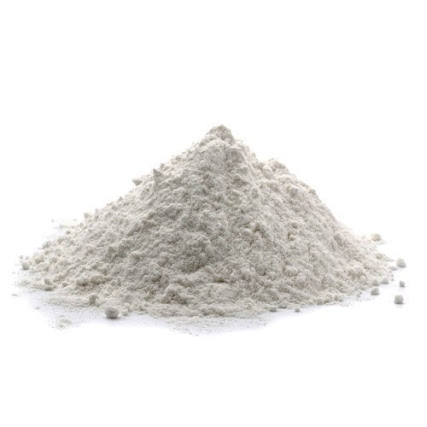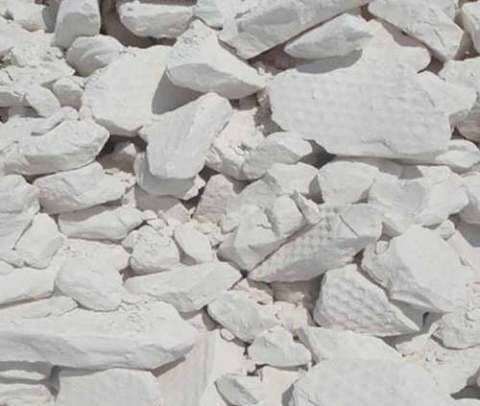The Importance of Quartz Powder in the Semiconductor Industry
The semiconductor industry plays a pivotal role in powering our modern technological advancements. From smartphones and laptops to medical devices and renewable energy systems, semiconductors are at the heart of these innovations. Amidst the intricate manufacturing processes and complex materials involved, quartz powder emerges as a crucial ingredient.
Quartz powder is a critical ingredient in the semiconductor industry, facilitating the production of high-performance electronic devices. From silicon wafer fabrication to thermal stability and etching processes, its properties make it indispensable. As a trusted quartz powder exporter, we ensure the supply of this essential material to meet industry demands.
In this blog post, we will explore the importance of quartz powder in the semiconductor industry, understanding its role, properties, and significance in enabling the production of high-performance electronic devices.
The Role of Quartz Powder in Semiconductor Fabrication
Quartz powder, also known as high-purity silica powder, is a fundamental component in semiconductor fabrication. It serves multiple purposes throughout the manufacturing process, ensuring the production of reliable and efficient electronic components.
1. Silicon Wafers and Substrate Production
Quartz powder plays a central role in the production of silicon wafers, the foundation of semiconductor devices. The powder is used as a raw material in the Czochralski or floating zone method, where it is melted and solidified to form single-crystal silicon ingots. These ingots are then sliced into ultra-thin wafers, providing the base for the subsequent circuitry and electronic components.
2. Chemical Mechanical Planarization (CMP)
During the manufacturing process, the surface of the silicon wafer needs to be precisely planarized to achieve the desired flatness and smoothness. Quartz powder is employed in the chemical mechanical planarization (CMP) step, where it acts as an abrasive agent. It helps remove excess material, polish the wafer's surface, and create the necessary topography for subsequent layers and circuitry.
3. Thermal Stability and Etching
Quartz powder possesses exceptional thermal stability, making it an essential material for various thermal processes involved in semiconductor fabrication. Quartz tubes and boats, made from high-purity quartz powder, are utilized in thermal treatments like oxidation, diffusion, and annealing, where they provide a stable and controlled environment for the silicon wafers.
Additionally, quartz powder is utilized in etching processes. Etching involves selectively removing layers of material to create patterns and structures on the silicon wafer. Quartz powder is often mixed with etchants or used as a masking material to protect specific areas during the etching process.
4. Fused Quartz Crucibles and Ampoules
Quartz powder is used in the production of fused quartz crucibles and ampoules, which are vital in the growth of single-crystal silicon and other semiconducting materials. These crucibles and ampoules provide a high-purity environment, ensuring the integrity and quality of the grown crystals. Quartz powder's high melting point and resistance to thermal shock make it an ideal material for these applications.
The Significance of Quartz Powder
The choice of quartz powder in the semiconductor industry is driven by its exceptional properties and characteristics that are critical to achieving high-performance electronic devices:
1. High Purity: Quartz powder offers extremely high purity levels, minimizing impurities that could adversely impact semiconductor performance. This purity ensures consistent electrical properties and enhances the overall quality and reliability of semiconductor components.
2. Thermal Stability: Quartz powder exhibits excellent thermal stability, making it ideal for use in high-temperature processes. It can withstand the extreme conditions required for semiconductor fabrication, maintaining its structural integrity and ensuring reliable performance.
3. Chemical Inertness: Quartz powder is chemically inert, meaning it does not react with other materials or introduce contaminants during semiconductor manufacturing processes. This property ensures the integrity and stability of the fabricated devices.
Conclusion
quartz powder holds immense importance in the semiconductor industry. Its versatile properties and characteristics make it a key ingredient throughout the fabrication process of electronic devices. From the production of silicon wafers to thermal stability, etching processes, and more, quartz powder plays a critical role in ensuring high-performance and reliable semiconductor components.
Its high purity, thermal stability, and chemical inertness make it an ideal material for the industry's stringent requirements. As the semiconductor industry continues to advance, the significance of quartz powder remains unwavering, driving innovation and powering our modern technological landscape.




Comments
Post a Comment